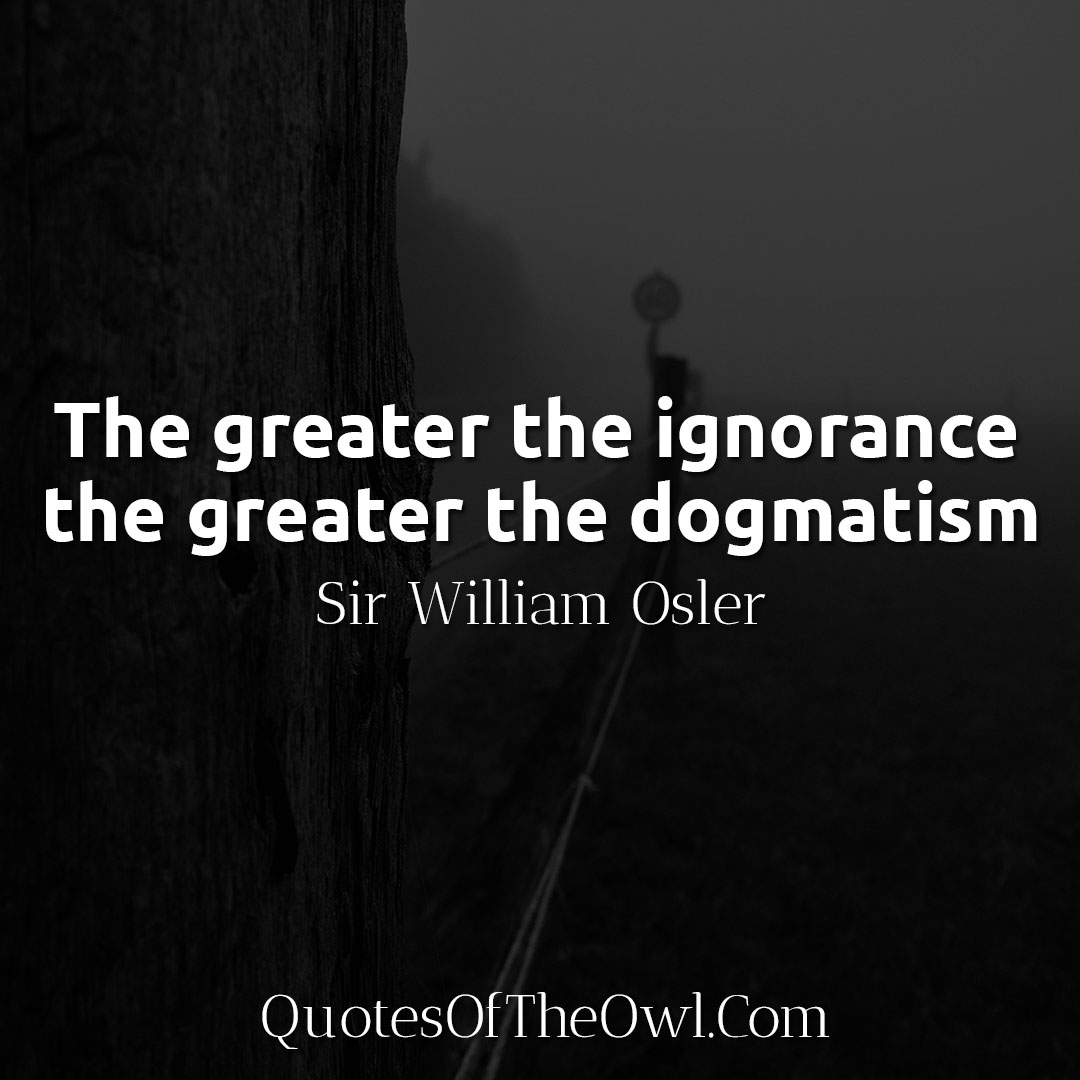The greater the ignorance the greater the dogmatism – Sir William Osler
Sir William Osler, a renowned physician and one of the founders of modern medicine, left behind a legacy not only in the field of medicine but also in the realms of philosophy and human behavior. Among his many insightful observations, one quote stands out: “The greater the ignorance the greater the dogmatism.” Let’s delve deeper into the meaning and significance of this thought-provoking statement.
Ignorance refers to a lack of knowledge, understanding, or awareness about a particular subject or issue. Dogmatism, on the other hand, is the tendency to assert opinions or beliefs as absolute truths, often without sufficient evidence or consideration of alternative perspectives.
Understanding Ignorance
Types of Ignorance
Ignorance can manifest in various forms, including:
- Lack of factual knowledge
- Ignorance of one’s own ignorance (meta-ignorance)
- Willful ignorance, where individuals choose to remain uninformed
Effects of Ignorance
Ignorance can lead to misconceptions, prejudices, and narrow-mindedness. It inhibits personal growth and impedes social progress by perpetuating myths and misinformation.
Understanding Dogmatism
Definition and Characteristics
Dogmatism involves unwavering adherence to one’s beliefs or opinions, often accompanied by intolerance towards dissenting views. It is characterized by close-mindedness, rigidity, and resistance to change.
Causes of Dogmatism
Dogmatism may arise from factors such as:
- Psychological need for certainty and security
- Socialization and indoctrination
- Fear of ambiguity and uncertainty
Connection Between Ignorance and Dogmatism
How Ignorance Fuels Dogmatism
Ignorance provides fertile ground for dogmatism to thrive. When individuals lack knowledge or understanding, they are more susceptible to accepting simplistic explanations or adopting rigid beliefs without critical examination.
Examples from History and Modern Times
Throughout history, instances of dogmatism have often been preceded by widespread ignorance or misinformation. From religious conflicts to scientific controversies, the link between ignorance and dogmatism is evident.
Impact of Dogmatism on Society
Polarization and Division
Dogmatic thinking contributes to polarization and division within society, as individuals become entrenched in their own beliefs and ideologies. This can lead to conflict, intolerance, and social fragmentation.
Stifling Progress and Innovation
Dogmatism stifles progress and innovation by discouraging open inquiry and exploration of new ideas. It hampers intellectual curiosity and obstructs the free exchange of knowledge and perspectives.
Strategies to Combat Ignorance and Dogmatism
Embracing Critical Thinking
Promoting critical thinking skills helps individuals question assumptions, evaluate evidence, and engage in reasoned discourse. By encouraging skepticism and intellectual humility, we can mitigate the influence of dogmatism.
Promoting Education and Open-mindedness
Investing in education and fostering a culture of lifelong learning is crucial for combating ignorance and fostering open-mindedness. Exposure to diverse perspectives and ideas encourages empathy, tolerance, and intellectual growth.
Conclusion
Sir William Osler’s quote, “The greater the ignorance the greater the dogmatism,” serves as a poignant reminder of the interplay between knowledge, belief, and behavior. By addressing ignorance and challenging dogmatism, we can strive towards a more enlightened and inclusive society.

